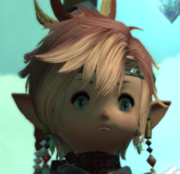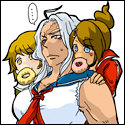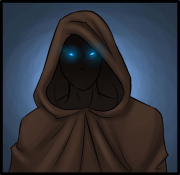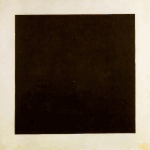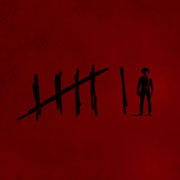|
 REPOSSESSION – PART ONE Wherein the investigators recover the Head and render the Sedefkar Simulacrum complete, much to the delight of the original owner, who soon comes to collect it. Background Fenalik doesn't follow the investigators to Belgrade. He goes straight to Sofia. He's just about reached the limits of his patience. He knows the final Simulacrum piece is in Sofia and he can't wait any longer. He squirms around in his coffin aboard the Express, knowing that his precious skin is so close yet so far. He longs for it to be complete so that he can finally kill the investigators, don the Simulacrum and walk under sunlight once more. The Head of the Simulacrum is actually in a surprisingly easy-to-reach location. It's sitting in storage at Sofia University. However, this close to Turkey the Brothers of the Skin are more powerful than any the investigators have met before. The Sofia chapter are well-armed, well-organised and extremely proactive in their search for the Simulacrum. A cultist named Nikolai is aboard the same train that the investigators are riding into Sofia. He is taking part in an elaborate initiation test to become a full-fledged Brother. His interference is going to begin a series of events that pushes the investigators to their absolute limit.  Train Fight! At the Tzaribrod customs point on the Bulgarian border, Nikolai boards the Express and kills a waiter, shedding his stolen cop uniform for a stolen SOE uniform. The Brotherhood have by now noticed that Brothers across Europe are turning up dead, and Nikolai's mission is to eavesdrop on passengers and ferret out potential threats to the cult. He's great at the killing part of his job but not so much at the spying and blending in, and he makes a pretty lovely waiter. The tendency to ignore customers to jot down notes about interesting conversations definitely doesn't help. While Nikolai tests his skills, the investigators run into Dr. Radko Jordanov in the same dining car. If you remember, he was first namedropped by Jazmina as Dr Moric's colleague who was going to inspect the Crusader's Tomb find. He probably catches the investigators' attention as he sits at his table taking notes with a Latin manuscript in front of him. His notes read, in very big letters, 'SEDEFKAR,' 'SIMULARE,' and 'DZHUDZHETA IDOL?' It's definitely caught Nikolai's attention. If the investigators introduce themselves, Jordanov's heard all about them from Jazmina and will be happy to share his findings – probably speaking louder than he should from the excitement of it all. The documents found in the vault reference the Sedefkar Simulacrum, and the description of the Simulacrum bears a strange resemblance to a similar artefact discovered by a former student at Jordanov's university, Ivo Penev. Penev called it the Dzhudzheta Idol after the dwarves of Slavic legend, and submitted a nonsensical paper that claimed it to be evidence of a pre-human civilisation. He was laughed out of academia and eventually fled the country, never to speak of the Idol again. However, Jordanov still has Penev's monograph, and he believes that the Idol was probably passed along to another researcher for study. As Jordanov explains this, investigators can detect their serveur is being awfully nosy with a Hard Spot Hidden or Listen (to angry passengers, that is). As soon as Jordanov mentions a possible location for the Idol, Nikolai tries to bolt from the car. The Maitre d'Hotel tries to stop him and gets slashed with a switchblade for his trouble. As the dining car erupts in panic, the investigators will probably want to pursue Nikolai – this is where those train carriage maps come in handy. This is an exciting set-up for a chase and it's easy to come up with ways to complicate things for the investigators on top of the ones the book suggests. Nikolai is heading for the nearest fourgon and has a head start. His goal is to pick up his satchel and jump off the back of the train. If he gets enough of a lead on the investigators, he'll have time to throw his bloody hatchet at whoever's in front too. Failing that, he just needs to be able to throw his satchel out the door. The book says that even if he gets shot and killed, his corpse still tumbles out the back of the train, but I'm honestly not a big fan of that kind of railroading. Whatever, that's Horrient for you. Nikolai gets the word back to the Brotherhood whether he lives or dies. The investigators are probably the first to find the corpse of the real serveur, most likely in the guard chamber of the fourgon. As well as being stabbed and slashed across the throat, his right hand has been messily hacked off – SAN 1/1D3. The surviving staff do their best to calm the passengers down now that the assailant is dead/off the train, while the investigators are asked to give details to the police in Sofia.  The Major The investigators are detained and questioned by a serious action movie-looking motherfucker named Major Vasil Christova. He asks for them to explain what they saw and compliments them on their bravery if they fought Nikolai. Unusually, he seems to take the discovery of a mysterious hatchetman and a mutilated corpse in stride. If they ask him about that, he replies evasively. They can Persuade or Fast Talk him into giving more details now, but for the purposes of the review I'll save them for later. Christova escorts the investigators out of the police station. He thanks them for cooperating (they did cooperate, right?) and tells them to be careful. He gets in a car with two heavily armed men and leaves. He doesn't talk to any other police as he goes, and they snicker behind his back. By the time the team and Jordanov are out of the building it's past 9:00 PM. Jordanov is shaken and exhausted from the experience. He has no energy to look for the monograph tonight, but invites the investigators to come to his home for breakfast first thing in the morning. If the investigators are still inclined to go sightseeing, they'll find that the locals come off as angry and tense. The Baleful Influence of the Head is aggravating the volatile atmosphere of Sofia. Jordanov recommends a humble establishment called the Fireside Inn to the investigators. Alternatively, they might want to go to the luxurious Hotel de la Bulgarie. Both places offer warm rooms and soft beds. Neither of them offer protection. Next time: someone loses an eye!
|
|
|
|

|
| # ? Apr 29, 2024 12:58 |
|
Ratoslov posted:Cats are OP. Best they can swing you is a mangey badger. Better than an anteater at least.
|
|
|
|
Evil Mastermind posted:Okay, I think this one shouldn't expire: https://discord.gg/g6k42JP A page ago, but I really appreciate it! Thanks so much!
|
|
|
|
The Horrient review actually has me a bit on the edge of my seat. Genuinely wondering what happens next.
|
|
|
|
After using it once, you must make a CON check or become addicted to The Deck of Encounters Set One Part 77: The Deck of Drunks and Jerks 424: Information Sink The PCs need info about something and are directed to a hermit called Schlade. They live at least 50 miles away, somewhere somewhat inaccessible, and the directions are difficult. Probably they live in a cave in the mountains, a small house on stilts in an alligator-infested swamp, or something. Information Sink posted:When they arrive, Schlade greets them at his door with a scowl. He is a tall, red-haired man who wears leathers that smell as if they have not been cured, and he favors one leg. His hair is unkempt, his beard scraggly. He turns away from the door, leaving it open for the PCs to enter or not, as they choose. Unless there is a woman in the group with a Charisma of 17 or higher, Schlade will not willingly talk to the PCs. He is unafraid of death, and wears an amulet of proof against detection and location to keep the PCs from prying information from his head. This particular amulet also prevents psionics. If the PCs badger him for longer than six hours, he breaks down and tells them what they need to know, but not before. So weird! It's a hard check: do you have a hot chick, yes or no? And if not, he has a super-charged magic item that’s trying to stop them from bypassing the situation any other way? (Though I’m not sure it does what the designer thinks it does - couldn’t they still just charm him or whatever?) Seems like the card designer really, really wanted the PCs to play out the Bulma/Turtle Hermit scene from early Dragonball. I’ll decline to enter this particular magical realm, and pass. 425: Trigger Finger The PCs wander into a… “trigger zone.” “Rare in the extreme” (indeed, so rare they only appear on this card), the zone makes all magic items discharge their effects (over and over until they're out of charges), and all wizards spells to be cast automatically - all at the same time, and at the shortest range of all spells they have prepared. So if you have any non-ranged spells, everything’s going to go off at ground zero. The items do start to glow and the wizards do feel this about to happen, so they have 10 seconds to react. The card says the best idea is to hit the wizard so all their spells are disrupted at once, but as a player, it wouldn't be at all obvious to me that that would work, After all, the spells are being cast explicitly without verbal, somatic, or material components. What is there to disrupt? It is a cool concept. I might save it for a villain’s ultimate power, that the PCs gather evidence of and have a chance to prepare for. Just exploding the spellcasters on a whim because of a card is a waste of the idea. Pass. 426: A Moral Dilemma One of the PCs’ henchmen have decided that they’re Robin Hood, and went and stole from a miserly grocer who refused to issue credit to a starving woman and their family. He disguised himself and only stole food, which he delivered to the woman’s house. The town guard is looking for the thief, and the henchman is turning to the PCs for advice, trusting their judgement about the situation. Dude. Do we not pay you a decent wage? Why didn’t you just buy the poor woman’s groceries? Let’s say he was drunk and/or high. The local punishment for armed robbery is getting flogged and losing a hand. “This could present interesting complications for good characters, especially those of lawful good alignment.” I… guess so? We can keep this, if one of the PCs henchmen is the "really dumb vigilante" sort. 427: The Danger of Drink Late night, after the bars have closed, outside the tavern the PCs have been visiting. A group of surly drunks have decided to pick a fight the next people who leave the tavern, that being the PCs. They try to push the biggest PC around or hit on attractive women. They’re not really a threat. All that is fair enough, though then we’ve got some manipulative DM pushiness. “If the PCs start to lose the fight, the town watch shows up. However, the DM is encouraged to fudge a few die rolls” to represent the men’s inebriation. Uh… how about “if a full fight breaks out, the town watch shows up in 6 rounds?” You know, whether the PCs are winning or losing? That leaves the possibility open for the PCs to slaughter the drunks and get in trouble for it. And how about “the drunks suffer a -4 to attack rolls and saving throws because they’re wasted” instead of “I dunno, fudge it.” All that aside, it’s a reasonable random thing to happen, and could lead to some fun character beats, so I’ll keep it. 428: The Plant While in a crowded area in a city, a thief on the lam tries to plant a glowing magical gem on one of the PCs. (Apparently all it does is glow, btw. No price listed.) “The thief, a human male, has a 60% of successfully performing the plant; the DM should multiply the PC's level by 3, subtract this number from 100, and compare the number rolled on d100 to the result. If the number rolled is higher, the PC notices the plant and can attempt to grab the thief by making a Dexterity check at -8.” That’s right - you’re playing Advanced Dungeons and Dragons now, motherfuckers. The guards will be by shortly, but even if the PCs get nabbed, a detect lie will eventually exonerate them. Oh, what drama. I’ll just skip the rigamarole and pass. The card would be more interesting if it gave a plot hook about where the gem came from, who it's important to, etc. Dallbun fucked around with this message at 15:25 on Jan 13, 2018 |
|
|
|
 Previously on Neuroshima: we learned world is a gently caress, machines are coming to kill us all, better take some magic pills to take us back to the good old days. Basic Mechanics  Chapter blurb posted:Like all games, Neuroshima has rules. This brief chapter explains their basics, so that you know what "Character on five" means right as you start reading. You'll find that knowledge handy many a time. So, that's self-explanatory, let's finally take a look at how the game is actually supposed to be played. I'm going to follow the layout of the book here as well; I'm hoping this will give you a better understanding of how the rules are presented. Checks are made by rolling three d20s. You need to roll less than or equal to the Difficulty Level (DL) on two of those; whether or not the third one is a success as well is largely irrelevant, but it gives you some extra safety. There are seven basic Difficulty Levels: Easy, Average, Problematic, Hard, Very Hard, drat Hard, and Lucky1. Each of them is a modifier you apply to the Ability score appropriate for the given check. (At this point the book does not explain what the Abilities are yet, which I think is kind of an oversight if you consider that it otherwise tries to be approachable for first-timers. It does not list what abilities you have, either, although it probably expects you to be looking at a character sheet at this point.) You need to roll less than Ability + Difficulty Level on two out of three dice. Simple, right? The nice part is that it allows you to just look at your character sheet and instantly know how much you need to roll - it has spaces for you to enter every difficulty level value for every Ability score. It also gives you a nice feeling of where some characters find any given task obviously easier than others. However, this fairly elegant core gets quickly overlaid with a bunch of issues. The first problem is that the DL modifiers do not follow a set progression, which is annoying. Easy is +2, Average is +0, Problematic is -2, and then Hard is -5. drat Hard is -11, Lucky is -15. Since Ability scores typically run from 5 to 20, this means it is entirely possible your character will be unable to succeed at some particularly difficult checks (or, rather, almost unable - see the Slider below). The second problem is that the game features various penalties (or bonuses!) that the GM is supposed to use to modify the difficulty level. These are expressed as percentages: +10%, +60%, whatever. They can come from pretty much anything: it's dark, so you shoot with a +20% difficulty penalty, you're wounded and in pain, so you get a +30% penalty to whatever, the bomb is about to explode and you need to hurry up, so +40% penalty. Once the GM adds them all up, they look the sum total in a table and checks what is the corresponding difficulty level. For example, less than 0% is Easy, 31-60% is Hard, 91-120% is drat Hard and so forth. The table caps out at 160%, but it never says what happens when the penalties get bigger than that (most unofficial materials add that if you get more than that from whatever they describing, you are incapacitated somehow, but this is not in the official rules). Presumably the task is impossible to accomplish. As you may have seen, the percentage brackets do follow the modifiers - 10% above modifierx10% is the upper limit - but in a way that is not immediately obvious and also compounds the issue of DLs being irregular. And, most importantly, that bit of the rules is simply unwieldy, and in all my years of GMing this game I preferred to just quote a Difficulty Level at players and adjust it if there were any modifiers that applied to that particular character only (usually wounds - and these modifiers are important viz. wounds and healing, we'll go back to this a lot later). Back on track. Skills! quote:If you have a Skill, that means you know something about something. And that's good, you're feeling it by now, aren't you? Skills have different levels that show how good you are at something. The higher the Skill level, the better. Skills allow you to subtract a number of pips equal to the value of the skill from the result of your roll. So if you roll a Pistols check and have a Pistols skill of 5, you can subtract, for example, four from one die and one from another, however you please. You do it after seeing what you have rolled, of course. The DL value is still determined based on your Ability score. ______________________Optional Content Starts Here The book suggests a number of optional rules that you can use with Skills. - Descriptive Skills: your skill value tells the MG how much of a specialist in a given field you are. He may decide to simply waive the check, if your skill level is higher than the DL modifier.2 So, if you have a Swimming skill of 3, and are faced with a Problematic Swimming check (-2), the GM may simply wave their hand and say you don't need to roll. - Related Skills: Some Skills are similar enough (Driving Cars and Driving Trucks, for example) that in some situations you may use a fraction (usually 1/2 or 1/3) of the related Skill value instead of the Skill that should apply (e.g. you can drive cars, but not trucks, so you convince the GM to let you use your Driving Cars skill instead). You cannot activate the Slider in this way. What is the Slider? Well, we'll get to it, I suppose. - Other Skills: Per GM discretion, you can come up with extra skills you can put on your character sheet. The GM decides what Ability to roll with those skills. They cannot be purchased as packs (we'll get to this later as well!). - Supporting _______________________Optional Content Ends Here Open checks are supposed to tell the GM not only whether or not you succeeded, but also by how much. Roll three d20s and discard the highest roll. Apply a Skill (if any). Compare the higher of the two remaining dice to the appropriate Ability score. If you rolled less, the difference is your success points, if you rolled more, the difference is your failure points. The GM may also apply a DL modifier to the baseline you compare against. Opposed checks are used for when you need to see who did better than someone else (e.g. one character is sneaking, another is standing watch). Both characters roll Open checks, applying the appropriate Ability score and Skill value, and any difficulty modifiers. Of course, the Abilities, Skills, and difficulty may be different for each of them (the sentry will roll a harder check in a dark, open field, while an empty, well-lit hallway punishes the sneaking guy). In retrospect, I never used opposed checks, because I am lazy and would not take the time of day to stat out skills for unimportant NPCs (I didn't do that in other games too, sue me), but it seems less unwieldy than I remembered it. It is a lot of rolling, though. And back in my day I literally did not have the money to spend on getting more than one d20, so we were usually short on dice anyway. The Slider is essentially a reward for getting Skills to high levels. For every 4 levels of a Skill you have, all checks using that Skill are a level easier: a Hard check becomes Problematic, a Problematic check becomes Average etc. This can allow you to try doing tasks your Ability score would otherwise prohibit. However, this also has a downside. A skill of 0 makes your checks a level harder. The Slider does not work for combat actions performed in combat - that is not a typo. It won't work when you're shooting, or stabbing, or throwing something. It will work for non-combat checks in combat, such as Pain Resistance, or when you're trying to climb something during combat, or disarm a bomb during a shootout, and so forth. It will also work for combat actions outside of combat - if you're lining a perfect sniper shot before the fight has started, you can use the slider. Another way of circumventing the Ability score lockout is by pure luck. If you roll a 1 on any of the dice, it lowers the DL one level. Conversely, an unlucky 20 makes the entire check one level harder. Of course you need a natural result, modified 20s and 1s don't count. That's it for the basic mechanics! But there's going to be more. Much more. If you feel like I have not been clear enough in explaining something, feel free to point it out! Next time: Character Creation, Part One! 1. I translate is as Lucky, but the original Polish is "Fart," which means the kind of outrageous luck you wish upon your friends and curse in your enemies. It's the kind of luck that that loving Russian kid who keeps headshotting you in CS 1.6 has. And yes, I realise it looks like the word "fart." 2. I realise they mean absolute value of the modifier rather than just the modifier but let's be real Tevery Best fucked around with this message at 22:02 on Jan 13, 2018 |
|
|
|
I just read up on SLA: The Truth. I never thought I'd see the Hot Topic version of the Snowglobe Kid from St. Elsewhere would show up in an RPG
|
|
|
|
SirPhoebos posted:I just read up on SLA: The Truth. I never thought I'd see the Hot Topic version of the Snowglobe Kid from St. Elsewhere would show up in an RPG The Truth is probably the worst thing about the game. I mean, there's loads of really stupid poo poo, but then it all gets handwaved away by The Truth. It's a bit of meta-game nonsense that doesn't matter at all to the characters.
|
|
|
|
Dallbun posted:After using it once, you must make a CON check or become addicted to This is great because it can play out without involving the PCs at all. The thief fails to plant the gem and the PCs fail to notice and later some guards roll by in pursuit of a gem that isn't around. DM just rolls percentile twice, shrugs, and puts the card away. Too bad there's no listed XP value.
|
|
|
|
And given the drunks are probably no class commoners and ineberitated, would they even be a threat to even a low level party? And seems like a time for a wizard to cast sleep or hold person to bypass the fight.
|
|
|
|
Okay but what does a character being "on five" mean?
|
|
|
|
|
Naturally, this is the one question they do not answer in this section of the book  Character is one of the ability scores. Character on five is another way of saying you have a score of five. This is bad for obvious reasons.
|
|
|
|
 REPOSSESSION – PART TWO Give Them A Hand The Brotherhood of the Skin have tracked the investigators. They have a huge sack filled with enchanted severed hands, dozens of them, that can obey commands and run like Thing. These Living Hands crawl into wherever the investigators are staying – coming through the hotel's heating vents or the inn's fireplace – and set to work trying to steal an eye from a random investigator. They come into the room in one great scuttling wave. They get a Stealth check, and if they fail the investigator(s) get a Listen check. Succeeding at the check means the investigator wakes up just as the first hand attacks. Failure means the hand succeeds automatically. The Living Hands are quick, supernaturally strong and can jump six feet in the air. They attack by scratching, gouging and choking their victims. They only have 5 hitpoints apiece but there's uh, a lot of them. Thankfully, the Brothers aren't trying to kill the investigators just yet – they just need one itty bitty eye. The hands will keep fighting until they can gouge an eye out, at which point the victorious hand will roll the eyeball into its stump and make a break for it. With the other hands protecting it, it'll probably be able to escape back to its master. The book suggests that the poor bastard who lost an eye should immediately lose 25 points in Spot Hidden and Track, should never be able to raise those skills above 75% from now on AND lose 10 points of DEX AND some negotiable number of APP. Even if that's 'realistic', getting crippled in the most rolled skill in the game seems extremely harsh to me, especially for something that was pretty much unavoidable. All this on top of 1D4 SAN. Naturally, whoever lost the eye is going to be an intense amount of pain and will probably need to dose up on laudanum. If only their troubles ended there. The Brotherhood are using a spell called The Accursed Eye. The caster immediately gouged out his own eye and replaced it with the stolen one. Now, he can see whatever the victim sees. However, after 24 hours the eye starts to rot away. The whole time, the victim feels a terrible itching inside their empty eye socket along with nausea, dizziness and headaches. Worst of all, they can see what the caster sees. These visions are fleeting but come with a sickening intimacy, as if they were really there. The pain gets worse as time goes on, until eventually the eye totally rots away and the victim's head explodes. Thankfully, it won't get to that point. More on that later. The book offers a rough timeline of the visions, starting barely an hour after the incident with the sorcerer who cast the spell running through dark alleys, getting into a car with his allies and driving out of the city for the first seven hours.  We're Having So Much Fun Today Guys There's no way to catch up with the Brothers. May as well hit up Jordanov. Naturally, he's aghast to see how much has happened to the investigators in less than 12 hours. Banitsa and Turkish coffee probably doesn't make up for getting maimed but it's better than nothing. Like many academics, Jordanov isn't exactly what you'd call 'organised' and if the investigators don't help him it will take five hours for the good doctor to find the monograph in his cluttered library. It'll take the investigators Spot Hidden to find some boxes of monographs, then Library Use to find the right one. The chap with one eye can sit this one out. Jordanov has three copies of the monograph in Bulgarian and Russian, titled The Dzhudzheta Idol – Evidence of a Civilisation Older Than Mankind. If the investigators lack both languages, Jordanov can read it out to an investigator, but this takes three hours. The sixty-three page paper eventually degenerates into wild conjecture and baseless assumptions, but the monograph works as a tome and gives a little +1 Cthulhu Mythos. More disturbing is the fate of the past two custodians of the idol. Both of them were academics at Sofia University, but the first butchered his family and wore their flayed skins before suiciding by cop, while the second suffered headaches so severe she drove an icepick through her own eye. Jordanov is extremely shaken by this discovery and will need to be persuaded to contact the university for the investigators. He might be willing to let them use his research materials later, but he is done with this investigation. As soon as the investigators leave he burns all three copies of Penev's monograph. The current owner of the Idol is Professor-Academician Chedenko, an extremely wizened old man who works out of the office of one of the former owners – Family Flayer, not Icepick Gal. He found it among old mate's belongings and knows a bit about it; so far, no-one has been able to date it or determine any other details about its construction. Chedenko thinks it's just a very well-made hoax, perhaps with an experimental plastic. As he speaks, he pauses sometimes to rub his temples, and he admits to getting frequent headaches. He's still got the Idol and he's willing to show it to anyone with academic guanxi or Fast Talk.  When the investigators come to the Idol's storage room, they find it in chaos. There's three people here, two who have been viciously bludgeoned and the other missing a head – SAN 0/1D6 to see that body spraying blood like a fountain. The window to the room is open and three men stand by it. They are Brothers of the Skin, wearing hoods and masks of tanned human leather. Investigators are just in time to see one of them abseil out the window with the Head of the Simulacrum. The other two turn their guns on the new intruders. Next time: HP Lovecraft's Rainbow-Six! Down With People fucked around with this message at 08:35 on Jan 14, 2018 |
|
|
|
Robindaybird posted:And given the drunks are probably no class commoners and ineberitated, would they even be a threat to even a low level party? And seems like a time for a wizard to cast sleep or hold person to bypass the fight. That would be ideal, yes. I feel like the real challenge is dealing with them without killing them outright.
|
|
|
|
Icepick Gal is the worst superhero moniker I've seen so far in this writeup.
|
|
|
|
Dreamlands stuff can be hit or miss for me since the tone can be difficult to reconcile with waking world events, but I'll take our talking kitty pals over "gently caress you, he gets away" and "gently caress you, lose an eye" any day.
|
|
|
|
 LIBER MAGICA EMPIRICAL THAUMATURGY Or I Want To Make a Sailor Moon Joke But She and Her Squad Just Straight Kick rear end There are basically new rules that augment Thaumaturgy and generally in a "poo poo poo poo it doesn't work how we initially designed it" way. Let's all return back to our halcyon days of Wizard College and peep these changes.
 The "upside" is you can basically pay points to always be in sync with your Zodiac sign. I say "upside" because it's basically just feat tax. The Zodiac weakens bonuses and penalties depending on what you're doing. If you've got a penalty to Entropy dice for X school of magic then you get -3xEntropy penalty dice to cast with. If there's a penalty to Order out in the cosmos, then any Order successes against you get reduced by whatever penalty. And then of course depending on the day of the week certain spells are easier.  Telluric Currents There are now rules for basically finding ley lines. Currents exist in the form of lines and nodes and you can find and follow lines by dowsing or using other means of detection to follow the flow back to a node. When a line or a node has been found, you can then tap into the node to regain Quintessence. Lines are easier to find but give less Quintessence. Nodes are harder to find but give much more. Either way only one magician can tap either type of source at a time, based solely on initiative.   These rules are fine. They don't really do much. They're not like wholly necessary but they don't make things any easier for spellcasters. Ceremonial Magic Ceremonial Magic is just ritual magic between a bunch of hermeticists working together to cast a spell. You need 10 minutes of prep per Quintessence point cost (halved with a dedicated workspace) to prepare a ceremonial spell. Everyone involved in spellcasting pays the full Quintessence cost of the spell and they have to pay it in a set order of participants. Every success adds 1 automatic success to the Primus, the magician who is leading the ceremony, for when they make a Resolve+Thaumaturgy spell.  So why not just have one hundred screaming magicians hollering about the working of the spheres? Because except for the Primus, every participant in the ritual inflicts a 1 black dice penalty to the rolls to give the Primus successes. A ceremonial casting of 13 people (including the Primus) inflicts a 12 black dice penalty on everyone's effort to pump up the Primus. There's also the fact that a dedicated and set schedule of participants means party-crashers can target people who haven't gone yet to deny the Primus further bonuses (it doesn't stop the ceremony though). Really the only upside is that as long as everyone is inside the prepared space, if a ceremony fails you can just keep casting as long as you have Quintessence to try again. Outside of that, ceremonial casting really isn't worth it. HERMETIC COLLEGES So Hermetic Colleges are completely optional which is good because the only time they really matter is when you pick that one Talent that reduces your Quintessence cost for spells of that college. That's it. That's literally the only thing colleges are for, that and days of the week discounts and also lumping the schools into collective groups of like spells for easier sorting. There's further information below that, uh, heavily involves the Yehudi (this universe's version of Judaism) dividing magic into groups. Also, most annoyingly: in this book they stopped grouping spells alphabetically by translation. They are now alphabetic by Latin name. I don't know why they decided to switch that up but I'm putting them back in English alphabetical order.  Aether The school of Aether is often taught by war colleges or by colleges that at least want to teach mages a little bit of offense or defensive magic. Aether also includes Aetheric Bludgeon, Bolt, Inferno, Pocket and Steely Skin. 
Bios deals with healing and manipulating bodily functions. Knowing these spells and having a medical license means you legally count as a chirurgeon. Bios includes the spells Cure, Groom, Hair of the Dog and Heal. 
Ignotis studies the unknown which means it really just studies ghosts and poo poo. It's popular in America and popular amongst people interested in ectoplasm. Ignotis gets the spells Ectoplasmic Bonds and Ectoplasmic Hand. 
Lux controls light, both literal and metaphorical. Lux also contains the spells Darkness, Firespark, Gaslight, Instant Beauty, Invisibility, Second Sight and Spyglass Eyes. Lux only has more spell added. 
Machinam solely focuses on magic that affects technology and machines. It's pretty popular in Scotland. Spells include Animate, Pepperbox Volley, Power of Steam, Repair and True Lock. 
Motus is the school of magic that has to do with movement. It was originally home to magic that let people do impossible feats like traveling the world in steps or raising flying cities. Now it’s mostly just movement bonuses and such. Motus also includes the spells Flight and Flight of the Wyvern. 
Tempestas is magical manipulation of the weather and the environment. That’s really it. It had its heyday a while back and now people study it mainly for the purposes of weather manipulation for offensive or defensive purposes. Tempestas has no old spells that roll over into this one and it’s 100% shiny and new. 
Vox controls language, which…well go figure. People specifically focus on studying Vox to study the interaction between language, magic and thought. It includes the spells Botheration, Farspeech, Scholar’s Guard and Tongues. 
 So those are all of the new spells and rules offered for Empirical Thaumaturgy/Hermetic Magic. Ultimately I think only a few spells are worth anything. Costs and weaknesses changing based on days of the week and zodiac sign is annoying, tapping into ley lines is fine but doesn't really add much, ceremonial magic exists, Overcasting is okay and I'm not a huge fan of the whole magic school thing. Really the idea I like the most is skill compatability giving you a dice bonus...if you actually got a dice bonus that was worth a drat. Oh well. But we're not strictly done with Thaumaturgy! NEXT TIME we get a new form of magic based off Hermetic principles, ALCHEMY! Spoilers: it's bad! It's at least interestingly bad and bad in an unexpected way for alchemy!
|
|
|
|
Zomborgon posted:Icepick Gal is the worst superhero moniker I've seen so far in this writeup. her archnemesis Trotskyist Man
|
|
|
|
"Yehudi," really.
|
|
|
|
|
I'm going to very carefully not look at that take on the kabbalah because I have the strangest feeling it's going to really piss me off.
|
|
|
|
Loomer posted:I'm going to very carefully not look at that take on the kabbalah because I have the strangest feeling it's going to really piss me off. Nessus posted:"Yehudi," really.
|
|
|
|
Angrymog posted:The Truth is probably the worst thing about the game. I mean, there's loads of really stupid poo poo, but then it all gets handwaved away by The Truth. It's a bit of meta-game nonsense that doesn't matter at all to the characters. Any staff memeber that suggest that your setting should actually be a dream, especially if it's a dream of a kid, should have the silly beaten out of them.
|
|
|
|
How do the situational modifiers affect your ability checks in Neuroshima? From what I'm seeing, it's percentage-based but you're not rolling 3d%, you're rolling 3d20 and trying to get under Attribute + Skill + Difficulty. Like, say an Average task to shoot someone has a target number of 9, but I'm using my left hand to shoot so it's 20% harder than usual. Does that bump my target up to 11 (9 + 1.8 = 10.8, rounds up to 11)?
|
|
|
JcDent posted:Any staff memeber that suggest that your setting should actually be a dream, especially if it's a dream of a kid, should have the silly beaten out of them. I mean, we just got done praising an adventure that takes place in the dream-world here with the Dreamlands Express. 
|
|
|
|
|
Hostile V posted:If you don't like that you might not want to refresh yourself on their take on Islam, the Followers of the Word who are 100% oral traditionalists and memorize everything instead of having a book written down. I think I'm going to lie down.
|
|
|
|
Dreamlands isn't the entire setting, and it feels more like real place accessed via dreams, no?
|
|
|
|
Snorb posted:How do the situational modifiers affect your ability checks in Neuroshima? From what I'm seeing, it's percentage-based but you're not rolling 3d%, you're rolling 3d20 and trying to get under Attribute + Skill + Difficulty. Like, say an Average task to shoot someone has a target number of 9, but I'm using my left hand to shoot so it's 20% harder than usual. Does that bump my target up to 11 (9 + 1.8 = 10.8, rounds up to 11)? Yeah, the whole % thing is supposed to be just a bump to the target number, just expressed in a very unwieldy way. I honestly don't remember whether the actual numbers to add actually are based on TN percentages, or were some sort of "+40% is +3, flat" bullshit. There is a distinct possibility this game is bad.
|
|
|
|
Snorb posted:How do the situational modifiers affect your ability checks in Neuroshima? From what I'm seeing, it's percentage-based but you're not rolling 3d%, you're rolling 3d20 and trying to get under Attribute + Skill + Difficulty. Like, say an Average task to shoot someone has a target number of 9, but I'm using my left hand to shoot so it's 20% harder than usual. Does that bump my target up to 11 (9 + 1.8 = 10.8, rounds up to 11)? Lichtenstein posted:Yeah, the whole % thing is supposed to be just a bump to the target number, just expressed in a very unwieldy way. I honestly don't remember whether the actual numbers to add actually are based on TN percentages, or were some sort of "+40% is +3, flat" bullshit. That is actually the wrong answer, that is not how it works. What happens is you take all the situational modifiers, total them together, then cross-reference this with a table to see if you've passed the threshold for a different difficulty level.  (I should have scanned this in the first place, makes the entire thing clearer.) In your particular example, let's say there are no other modifiers, and shooting the guy would have normally been an Average test. But you are shooting off-hand, so you get a 20% modifier, this puts you over the Average threshold (up to 10%) and into the realm of Problematic. So this now becomes a Problematic test, and your target number goes from 9 down to 7. Meanwhile, your buddy Morgan Ratkiller shoots at the same guy, but he took a Glock shot to the leg earlier and it hurts like a bitch, he has a +30% penalty for it. But he's shooting with his dominant hand and so only suffers that 30% penalty. It's not enough to take him above the Problematic threshold, so he is also rolling a Problematic test - his target number of, say, 13 is bumped down to 11. Your other buddy Gallant does not have any negative modifiers and has brought a Beretta, which is Accurate and gives him a -10% bonus for shooting. His total goes from 0% to -10% and the check turns from Average to Easy, so his target goes from 8 to 10.
|
|
|
|
Zereth posted:Unless the fact that it's a dream is up-front, and relevant to the players mechanically. This is true. But the SLA Truth-Dream is just stupid and irrelevant to the characters.
|
|
|
|
Tevery Best posted:That is actually the wrong answer, that is not how it works. That really just makes the percentages into target number modifiers, though - just awkwardly categorized into a smaller number of actual modifiers you can get to the roll. The game would be straight-up easier if each +10% was replaced with "-1" and the scale rezeroed.
|
|
|
|
Not exactly, since the scale starts drifting off at higher difficulty levels (Average has a range of 10%, but Hard is 30%), but it is true in general that the percentages are clunky as hell. There is a variant rule of just replacing them with straight-up number modifiers, I usually just skipped the entire shebang and eyeballed the difficulty level (and shifted it around if I felt a specific character has anything working against them specifically). That way I kept all the calculations on me and let the players focus on more important stuff.
|
|
|
|
Tevery Best posted:Not exactly, since the scale starts drifting off at higher difficulty levels (Average has a range of 10%, but Hard is 30%) It drifts off with at the same rate the modifiers for that difficulty grows. There's a 20% difference between Average and Problematic, and Problematic is -2 harder than Average. There's a 30% difference between Problematic and Hard, and Hard is -3 harder than Problematic[1]. This means that you could just convert every 10% into a -1 target number modifier. [1] There's an exception in Easy, which is +2 but only slightly-more-than-10% from Average, but if the smallest increment is 10%, you need to go to -10%, or a difference of 20%, anyway.
|
|
|
|
Each time they cast a spell, “Alienist” wizards from Spells & Magic have a chance of incurring a random insanity, such as the desire to spend countless hours poring through and reviewing every single card from The Deck of Encounters Set One Part 78: The Deck of Nostalgia and Fudging 429: Daddy! In a busy market in the city, a halfling thief who stole some fruit out of hunger is running from guards. Her name is Jasmine. She flings herself at the PCs, calls them Daddy or Mommy, and tries to bluff her way out. If the PCs turn her in, she’ll lose a hand and hold a grudge. However, if they play along, the guards will demand 5 gp and go, and “Jasmine can then become a useful ally.” So as it happens, this, of all cards, is the first one that I’m 100% sure that I used back in my terrible childhood AD&D 2E campaign that I ran for my brother and his friends. I know because Jasmine ended being the party’s NPC thief (none of the players were running one). Hey, she’s 5th level according to the card. Pretty good for a fruit thief. I find it distasteful to suggest that grown-rear end halflings are indistinguishable from human children, but out of nostalgia I have to keep this one. I’ll say that the guards are just playing along themselves, angling for a bribe. 430: Fool’s Luck As they’re leaving a city, Nylie, the “local fool” comes along and begs to join them. He tells them he’ll do any challenge they ask, and if they’re slow to suggest something, he’ll suggest running to the corner “a fair distance off” and back within 15 seconds. A series of improbable coincidences will allow him to do just that. He’s got some OH MY GOD I used this card as a kid too. One of the PCs was a bard with the “jester” kit from The Complete Bard’s Handbook (surprisingly powerful, thanks to their +1/+5% bonus to everything except attack rolls), and he took Nylie on as an apprentice. Now I’m a little less thrilled with it. Nylie, and the abuse of his luck, would quickly wear out their welcome, and the joke would get old very, very quickly. I’m just going to pass, but maybe other people would have better directions to take this. 431: The Keys to the City In a city that the PCs have saved from some kind of danger, the heroes are awarded with a parade, and golden, rune-engraved keys, along with the position of “Protectors of Our City, with all the attendant privileges and responsibilities pertaining there unto.” If they accept the keys, they’re cursed, prevented from going farther than 10 miles outside the city. Uh. That’s all the keys do? They don’t prevent the champions from, say, going on a murder spree and burning down the city in a vengeful rage, starting with the rear end in a top hat mayor who just awarded them the position? Because that seems like a bit of an oversight in the enchantment. Anyway, if the PCs have spent much time in this city, it’s awkward to say that the townsfolk know about this protector-binding ceremony but that the PCs have definitely never heard of it. It’s also awkward to use as a random encounter, since it requires such specific setup. Interesting idea, but I’ll pass on keeping it in my deck. 432: Handy NPCs This card is kind of like #72: Town Watch and #80: Local Taboos! Which I hated. This one basically says “hey, when the PCs are in a jam, you can have a helpful NPC turn up to help them out of it! Maybe they can become PC contacts later!” YES UNDERSTOOD THANK YOU, THIS IS A DECK OF ENCOUNTERS NOT A GMING ADVICE BOOK. But I give this card a bit of credit, because it has a clearer purpose. It “will allow you to pull a card, seemingly at random. that will save intelligent PCs who made but a single mistake.” It’s the Deck of Encounters equivalent of fudging die rolls behind the DM Screen in the PCs’ favor, except extra transparent, because why am I drawing a random encounter when the PCs are (to use one example from the card) “underground, drowning slowly in a locked room?” So it’s still bad and useless in my book. Needless to say, pass. 433: ........... Hey, wait, there’s no card here. #432… was the last one? I… kinda thought the deck would go on forever.  That’s it, then. Retrospective/wrap up to follow. Dallbun fucked around with this message at 17:39 on Jan 14, 2018 |
|
|
|
Welp guess it’s time to start adding your own cards to the deck.
|
|
|
|
Fittingly, it ends with four passes.
|
|
|
|
I'm going to miss the Deck.
|
|
|
|
JcDent posted:Fittingly, it ends with four passes. Just three. But if I could've double-passed on Handy NPCs, I would have.
|
|
|
|
The deck is dead, long live the deck.
|
|
|
|
The end of an era. Thank you for these writeups, they were really interesting!
|
|
|
|

|
| # ? Apr 29, 2024 12:58 |
|
Thanks for the Deck write up, Dallbun! I really enjoyed your approach to it. Also a belated thanks to Hostile V for Abandon All Hope; I was away from the internet when you finished it and didn't catch up until weeks later. That was a lot of fun to read too.
|
|
|



